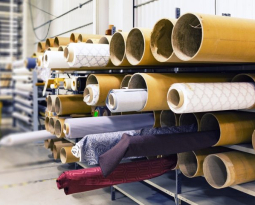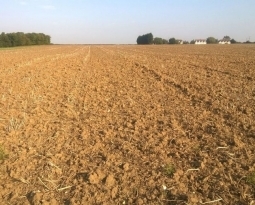Sortile Wins Circularity 22 Accelerate Competition to Improve Fashion Sustainability
Sortile has been announced as the winner for GreenBiz Group’s Circularity 22 Accelerate competition after taking the stage by storm with their captivating fast pitch. Four startups from across the circular economy landscape competed for the prize, pitching their ideas to two industry experts – Francesca Whitehead, investor at G2VP, and April Crow, vice president at Circulate Capital.
The textile waste management technology company is focused on creating a more robust, circular fashion industry. The rise of fast fashion and microtrends have led to approximately 92 million tons of global textile wastes created every year.
Sortile removes key barriers for textile recycling including the difficult sorting process and lack of data. With these barriers removed, brands are more likely to follow through on their sustainability commitments.
“I started my professional career doing research on Latin American retailers,” Sortile’s CEO Constanza Gomez, who grew up in Chile, told GreenBiz. “I was able to have a clear view of the amount of waste that was created in the industry. It quickly became a sort of obsession to understand why textiles were not recycled.”
The co-founders pitched their device which sorts clothing by fiber composition quickly and efficiently using near-infrared spectroscopy (NIRS). This technology is traditionally used to image and monitor blood oxygen levels in brains, muscles, and tissue for the detection of injury and disease. However, Sortile has found they can apply the technology to optimize textile recycling. When combined with Sortile’s proprietary machine learning algorithms, NIRS is able to scan apparel and identify fiber compositions with 95% accuracy.
This reduces the labor needed to properly process and sort textiles and cuts the time needed in half. It also provides valuable data for B2B customers and improves transparency. Companies that collect clothes (returns or donations) can sell them back to fiber recyclers – saving on disposal costs, diverting material from landfills and helping meet sustainability goals.
Are you developing new technology for an existing application? Did you know your development work could be eligible for the R&D Tax Credit and you can receive up to 14% back on your expenses? Even if your development isn’t successful your work may still qualify for R&D credits (i.e. you don’t need to have a patent to qualify). To find out more, please contact a Swanson Reed R&D Specialist today or check out our free online eligibility test.
Who We Are:
Swanson Reed is one of the U.S.’ largest Specialist R&D tax advisory firms. We manage all facets of the R&D tax credit program, from claim preparation and audit compliance to claim disputes.
Swanson Reed regularly hosts free webinars and provides free IRS CE and CPE credits for CPAs. For more information please visit us at www.swansonreed.com/webinars or contact your usual Swanson Reed representative.

















